
Health
20:44, 19-Mar-2018
NPC deputy calls for inclusion of AIDS treatment in medical insurance
By Su Yuting and He Weiwei
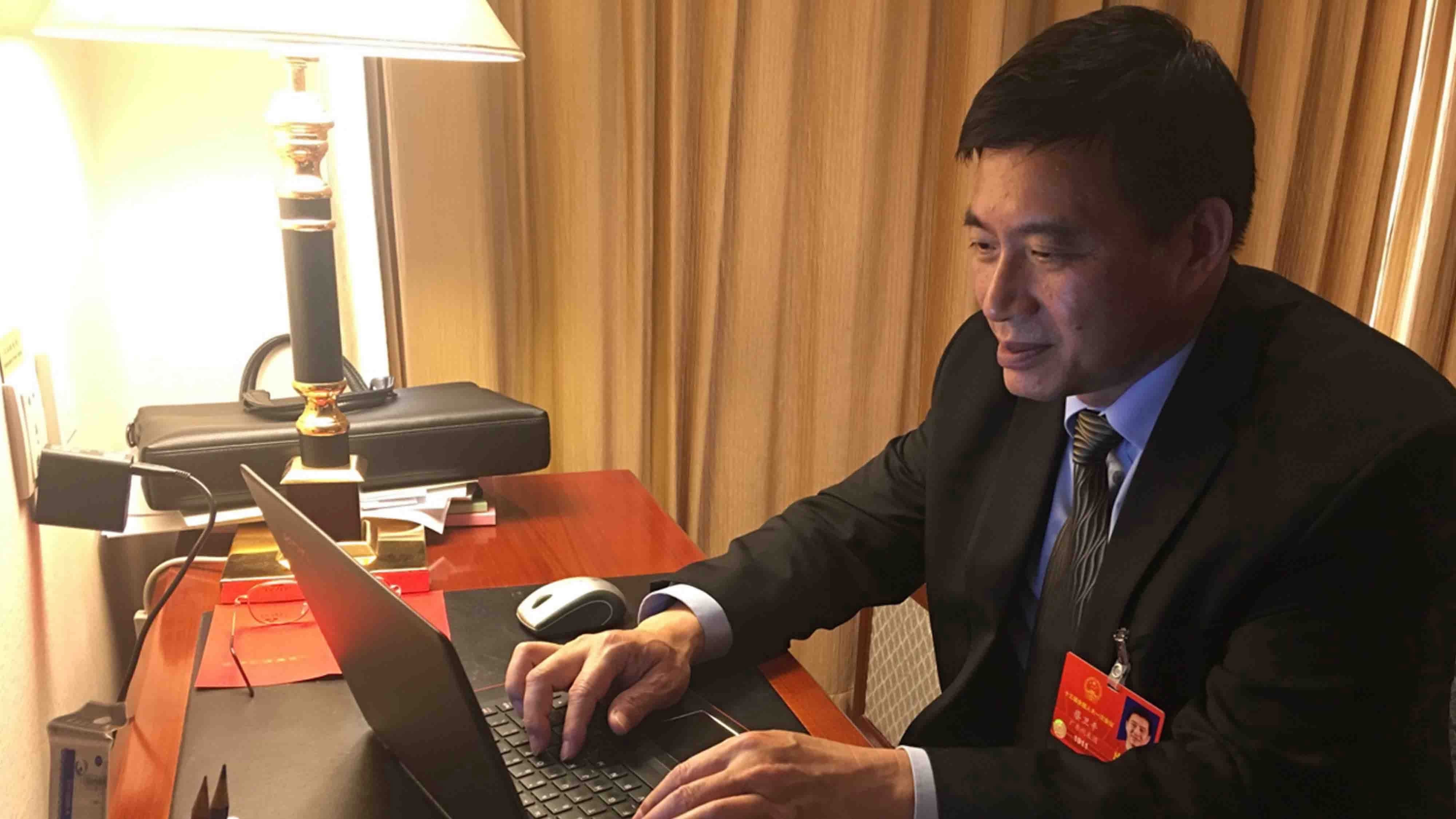
During the Two Sessions in Beijing, National People’s Congress (NPC) deputy Dr. Cai Weiping has put forward proposals to the 13th NPC on building a “healthy China.”
Traveling all the way from south China's Guangdong Province to Beijing, Dr. Cai has been working hard in a bid to safeguard people's health.
Cai Weiping works as director of the Infectious Disease Department at Guangzhou No. 8 People's Hospital. He is one of China’s first group of doctors specializing in AIDS treatment. He's worked for the past two decades and has treated over 20,000 AIDS patients.
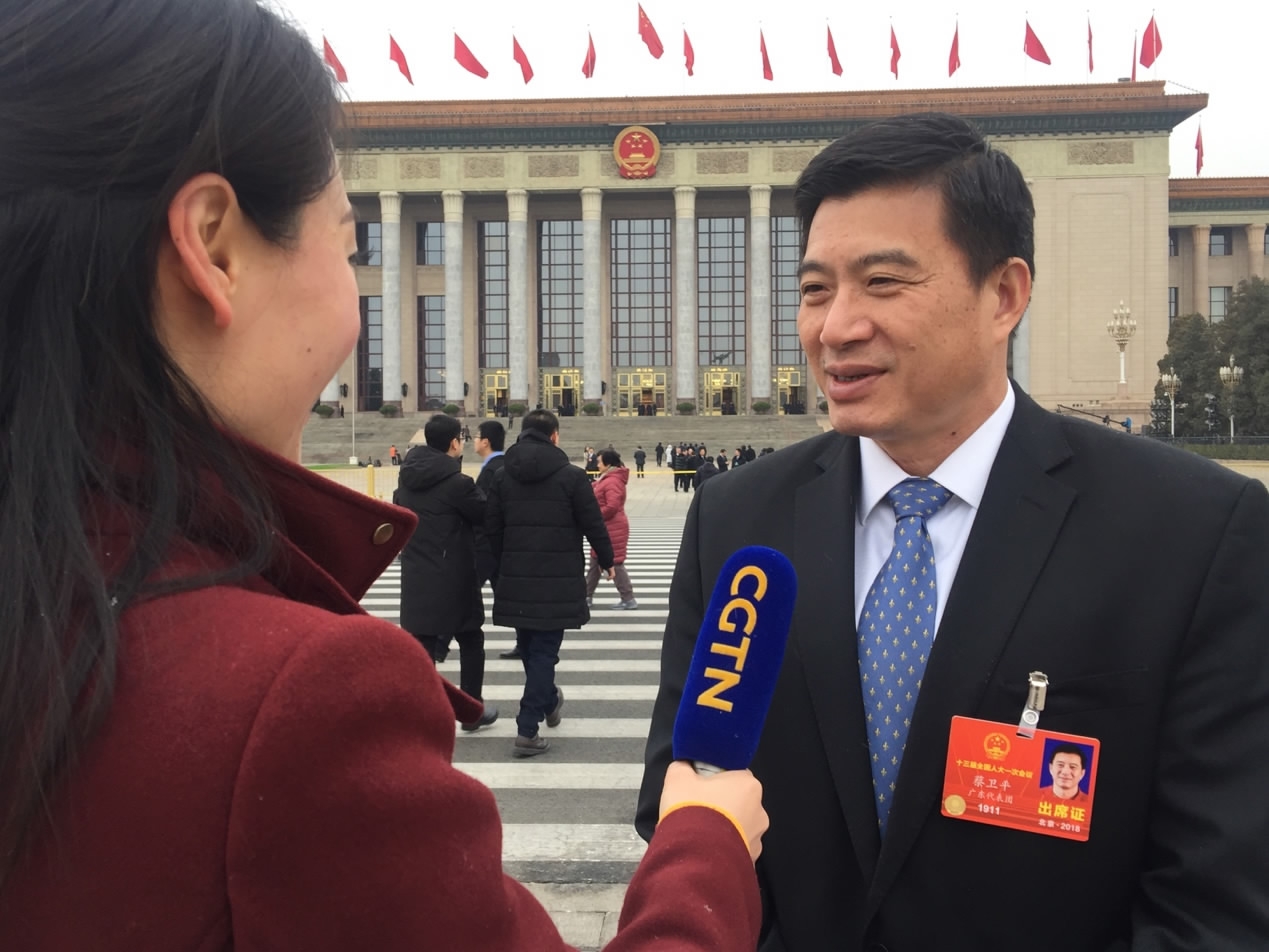
CGTN reporter interviewing Cai Weiping /CGTN Photo
CGTN reporter interviewing Cai Weiping /CGTN Photo
Dr. Cai is calling for more efforts in AIDS prevention, as well as pushing for the inclusion of AIDS treatment in the nation’s medical insurance.
"I have put forth a suggestion of including AIDS treatment in medical insurance. The main reason is that China has offered free basic medicine for AIDS for decades," said Cai.
"Nowadays, the situation surrounding patients has changed and health insurance coverage has improved, so I proposed basic free treatment, medical insurance, and self-paid treatment. These three methods could be combined together, so that patients can be treated with more effective medicine at a lower cost," he added.
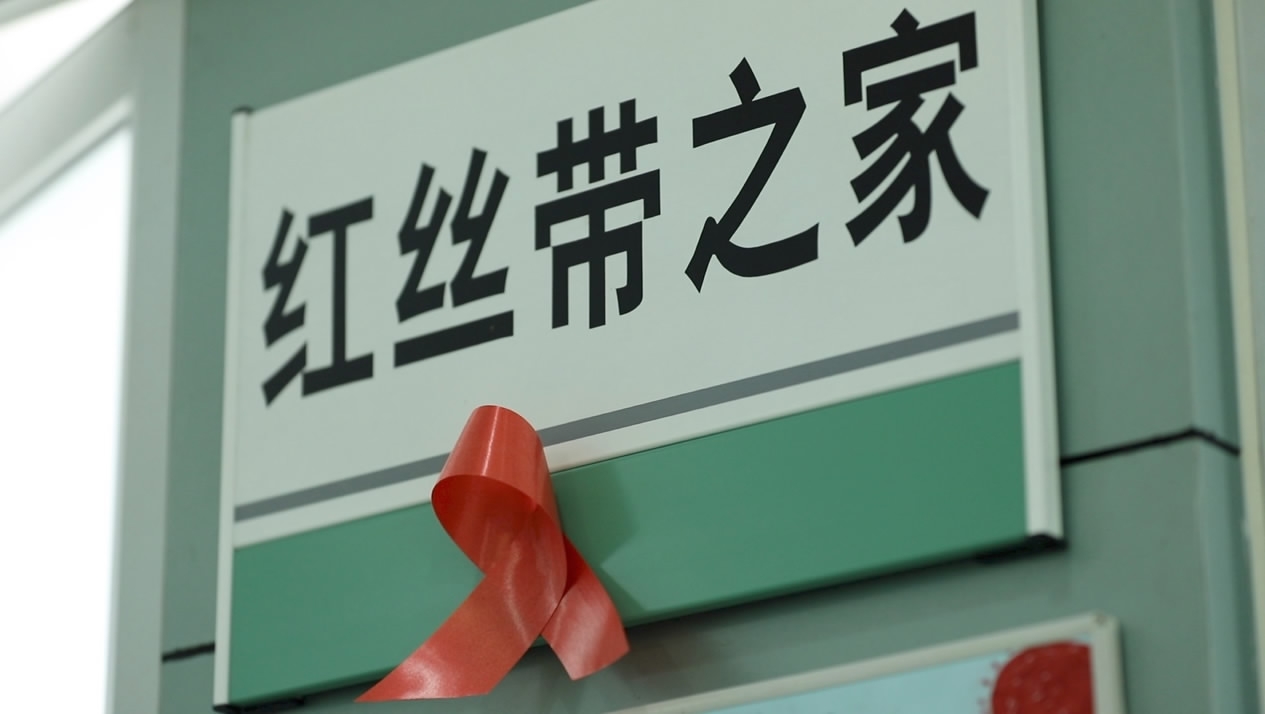
Cai Weiping hopes his hospital can be a safe harbor for his patients. /CGTN Photo
Cai Weiping hopes his hospital can be a safe harbor for his patients. /CGTN Photo
The Government Work Report at this year's Two Sessions highlighted the importance of implementing the healthy China strategy. The country will increase basic medical insurance and serious disease insurance benefits. Dr. Cai says he is glad to see the reform is already underway.
"This State Council institutional reform plan serves the people's willingness. A new national health commission will be established, and the current National Health and Family Planning Commission will no longer exist. This move emphasizes the importance of general health in protecting public health," he said.
For a large developing country like China, medical and healthcare is of vital importance to its population of over 1.3 billion, and is a major issue concerning its people's well-being. Cai Weiping says future efforts should focus on promoting healthy lifestyles and optimizing health services.
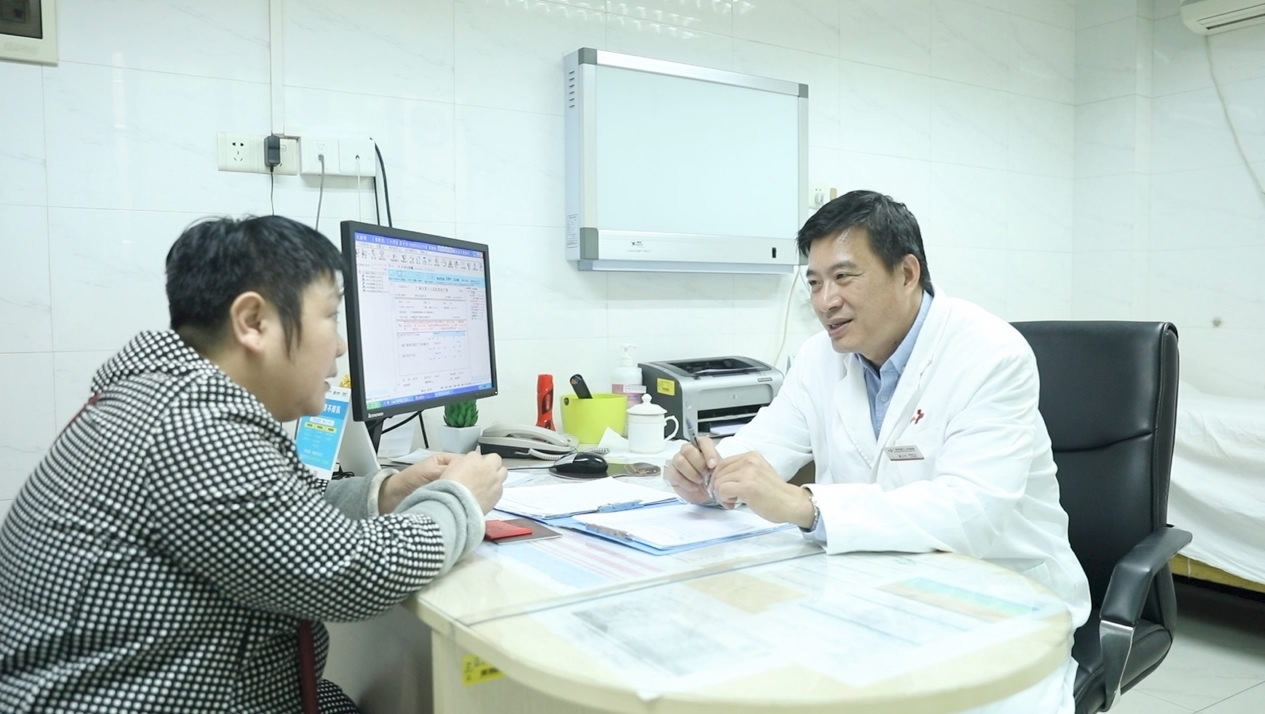
“I was the first person in Guangzhou to be diagnosed with AIDS,” someone who wanted to be identified as Hua told CGTN, “Dr. Cai was the first doctor and the only one 20 years ago in this hospital to conduct a physical examination on my body without gloves. It made a great difference. He made me feel like I was not discriminated against. Then we became good friends. We would meet every month, and I've helped him comfort other patients.”
Dr. Cai says he has hundreds of patients who became his friends. He wants to set an example and help eliminate the public's prejudice against people with AIDS.
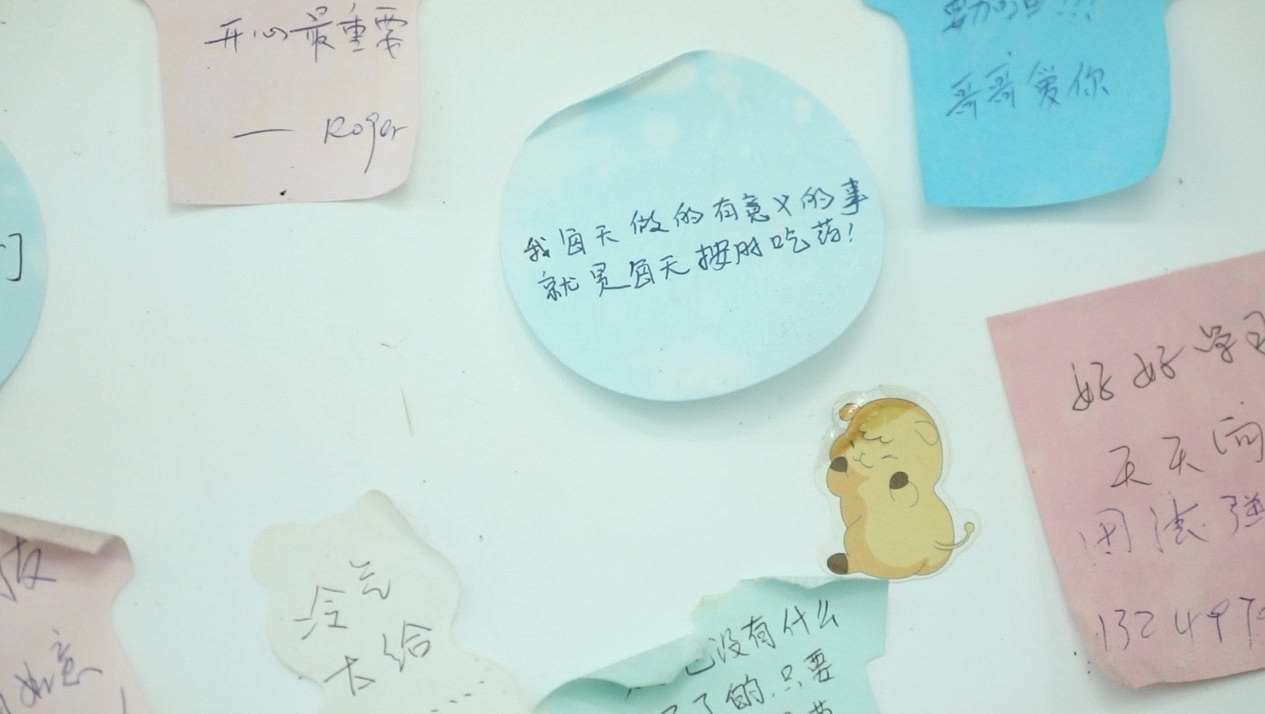
Among the messages left by patients, one reads: "The most meaningful thing I do every day is to take medicine on time." /CGTN Photo
Among the messages left by patients, one reads: "The most meaningful thing I do every day is to take medicine on time." /CGTN Photo
“Under safe circumstances, I’ll never wear masks or gloves. As doctors we ought to convey confidence to our patients. Sometimes even their own families are not willing to stay with them, so I’ll invite them to dinner together, to show their relatives that it’s safe to have a meal with AIDS patients.”
China currently provides free basic medicine for AIDS. As an NPC deputy this year, Dr. Cai is calling for the inclusion of AIDS treatment in the nation’s medical insurance system, under which people will pay part of the bill to get better drugs.
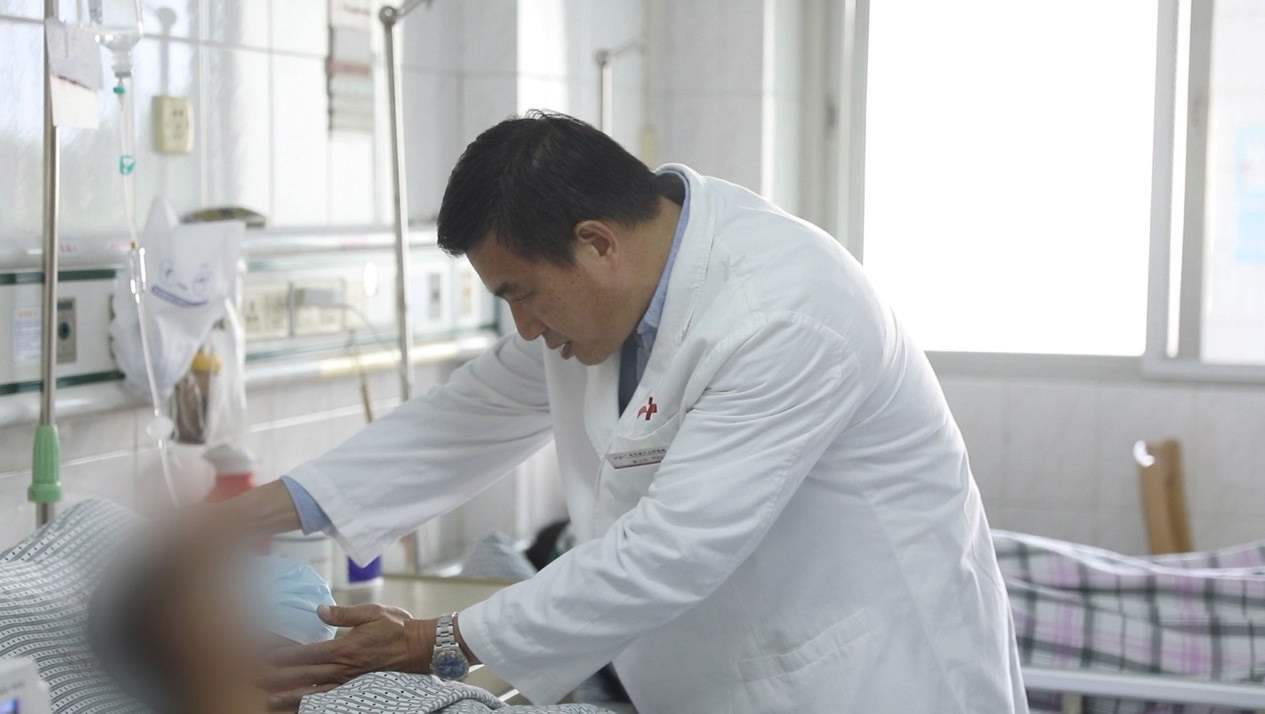
Cai Weiping at work. /CGTN Photo
Cai Weiping at work. /CGTN Photo
“Most of the free medicines are quite old, developed 10 years ago. And the newly-developed ones haven’t been introduced into China. That cannot meet patients’ demands for new drugs. For people willing to pay more for better drugs, we should offer them access. Medical insurance is the solution.”
1km

SITEMAP
Copyright © 2018 CGTN. Beijing ICP prepared NO.16065310-3
Copyright © 2018 CGTN. Beijing ICP prepared NO.16065310-3